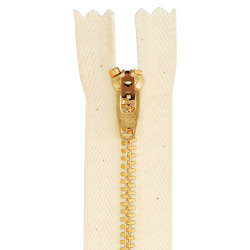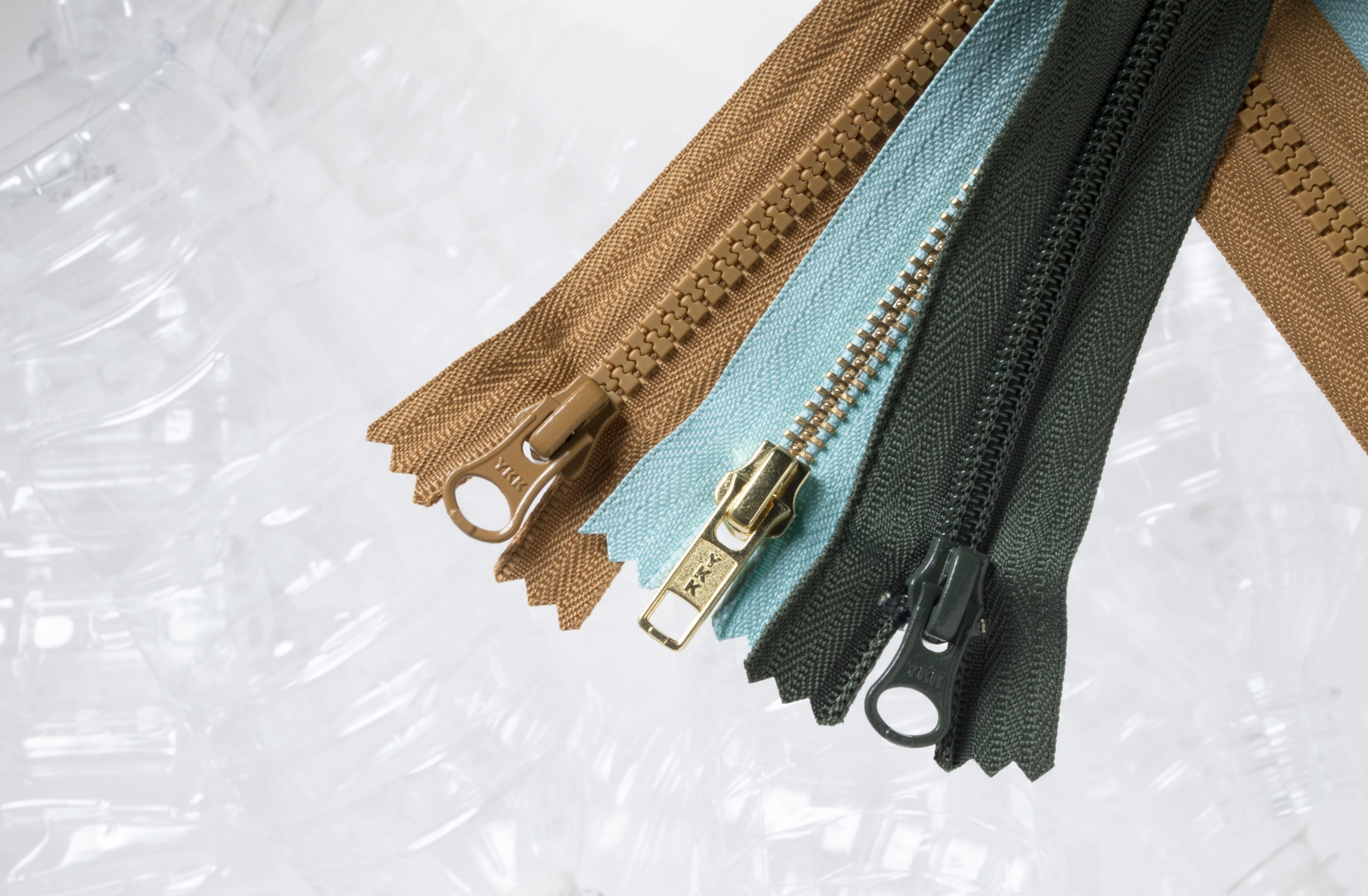This is a question that more customers are asking as they seek to find ways to reduce the environmental footprint of their products. While the term “sustainable” would seem to be straightforward and easy to understand, it can be tricky as it has different meanings for different people. At YKK, we define “sustainable” as products that use input materials or production processes that utilize less energy and water, use no toxic chemicals, and emit fewer greenhouse gas emissions compared to conventional zippers.
Zippers made from recycled materials
The most widely used sustainable zipper is YKK’s NATULON® zipper, which uses recycled polyester yarn in the zipper tape. Recycled polyester yarn offers a reduction in greenhouse gas emissions over virgin polyester yarn by up to 79%, along with savings in energy and water. For that reason, NATULON® zippers have a much lower carbon footprint than zippers made with virgin polyester. The NATULON Plus® zipper offers even greater impact reductions as both the zipper tape and teeth are made from recycled materials. The best part is there is no difference in appearance, strength, or durability of NATULON® fastening products compared to zippers made from virgin materials.
Zippers made from organic cotton and TENCEL™ fibers
Besides zippers made from recycled materials, YKK also offers sustainable zippers that utilize organic cotton and TENCEL™ fibers. These natural fibers provide a renewable sustainable source of material for the textiles used in zippers. YKK® zippers with natural fiber woven tapes help to eliminate the CO2 emissions associated with the production of synthetic textiles. These plant-based materials are renewable and can be grown regeneratively, helping to reduce resource depletion and contributing to a healthier environment.

Zippers made from bio-based polyester
These are not the only YKK® zippers that use materials from Mother Nature. YKK’s GreenRise® zipper features a textile tape made with a bio-based polyester. Using the byproducts of sugar production from sugar cane, the waste molasses is converted into ethylene glycol which is used as one of the components to make polyester yarn. The production of this bio-based polyester emits less greenhouse gases than polyester made from petroleum while creating new uses for agricultural waste. Indistinguishable from zippers made of virgin polyester, GreenRise® zipper offers the same YKK® quality and performance but with a lower carbon footprint.
These are just a few of the many sustainable zipper options that exist. Customers looking to reduce the environmental impacts of their products can choose the option that best fits their objectives or budgets. Finding the right sustainable zipper has never been easier. Contact us for more information.
YKK, GreenRise, NATULON, “NATULON Plus” are registered trademarks of YKK CORPORATION.
TENCEL is a trademark of Lenzing Aktiengesellschaft.
©2022 YKK Corporation of America

